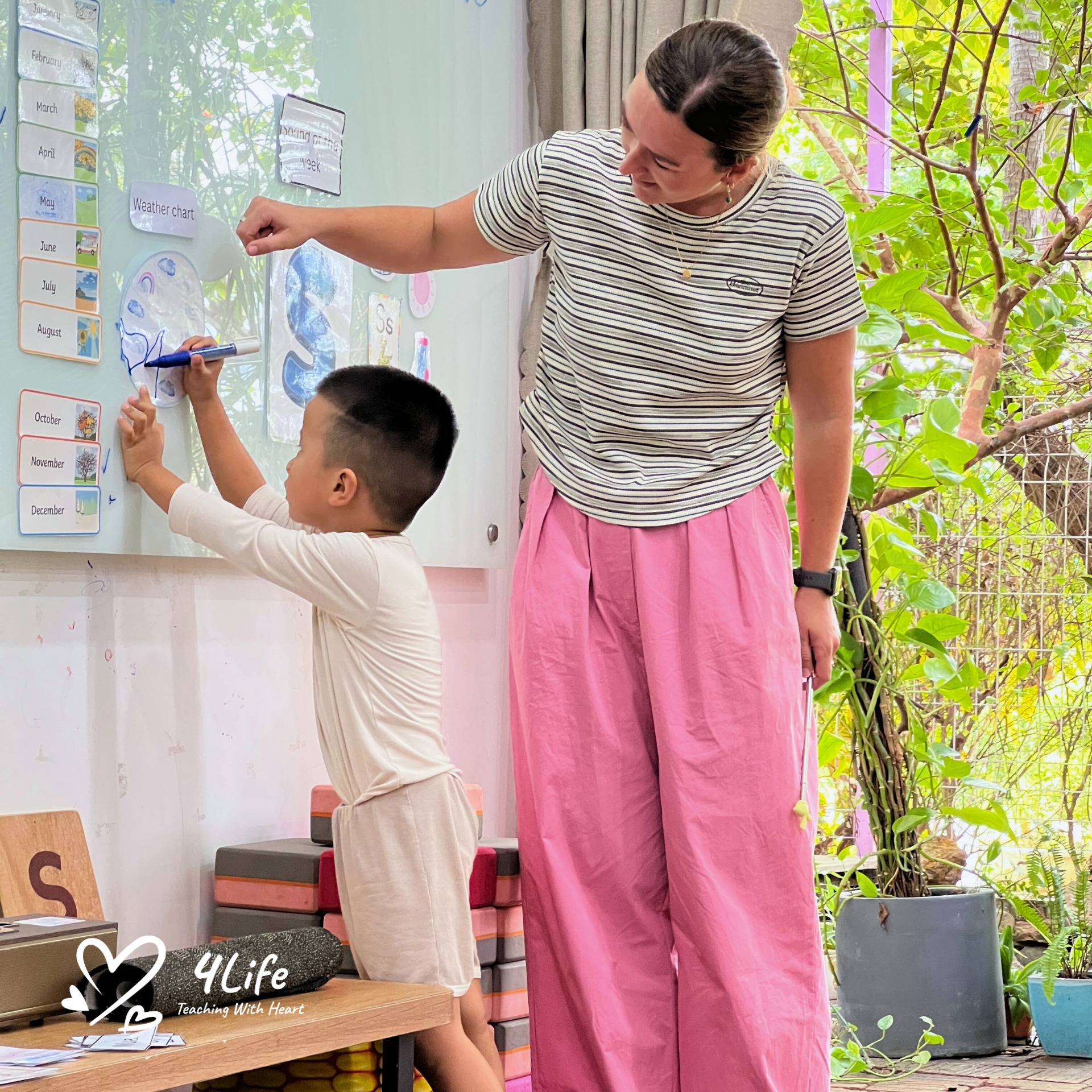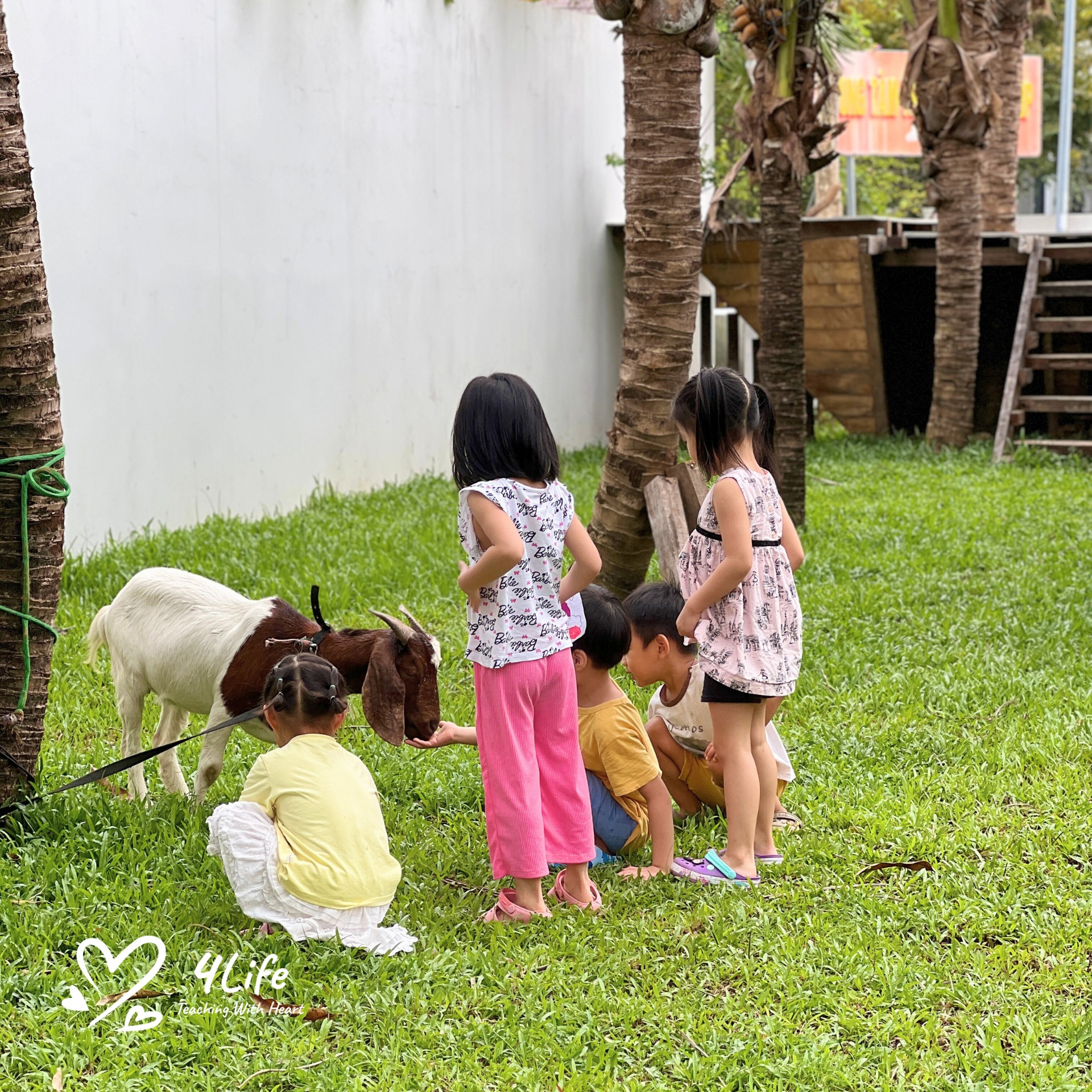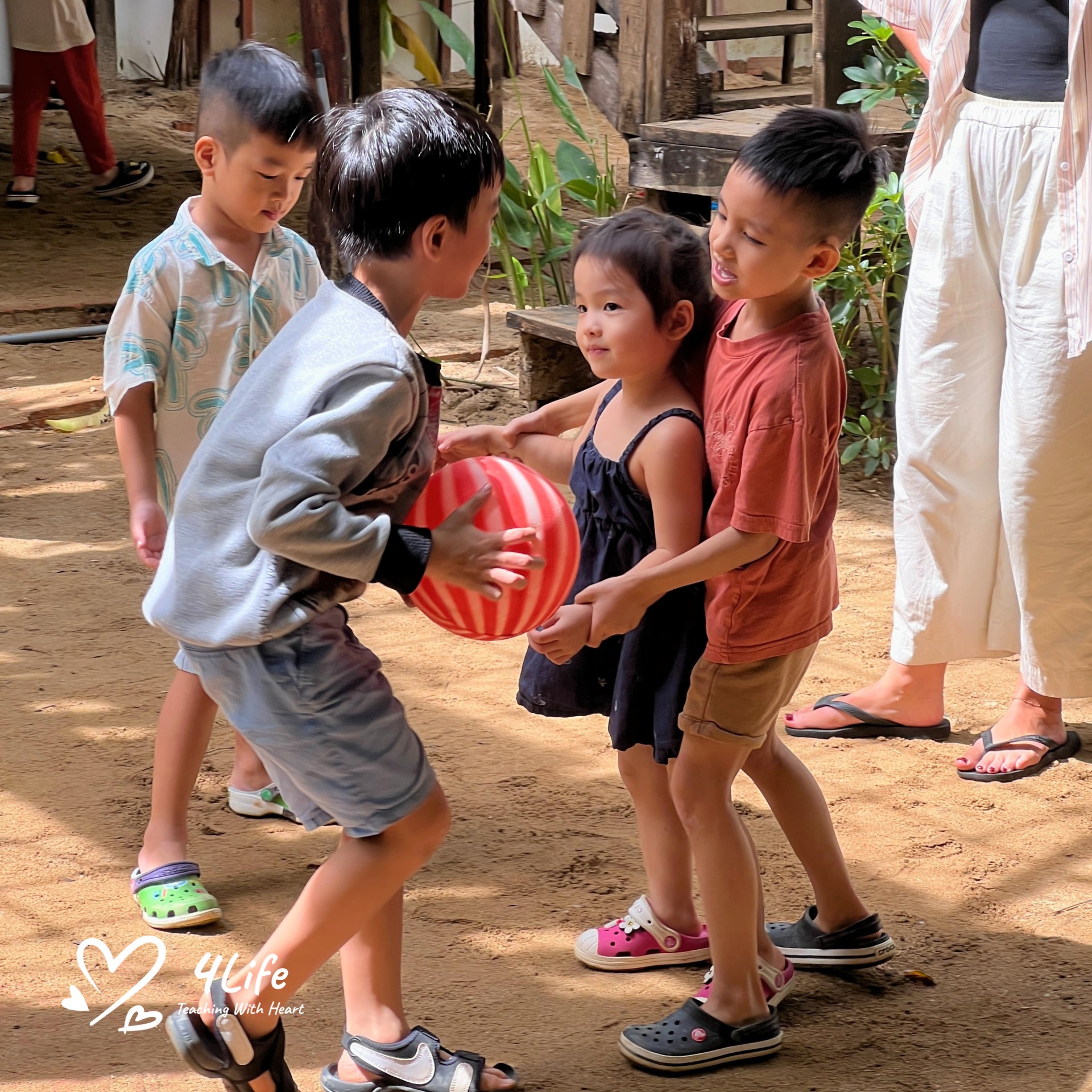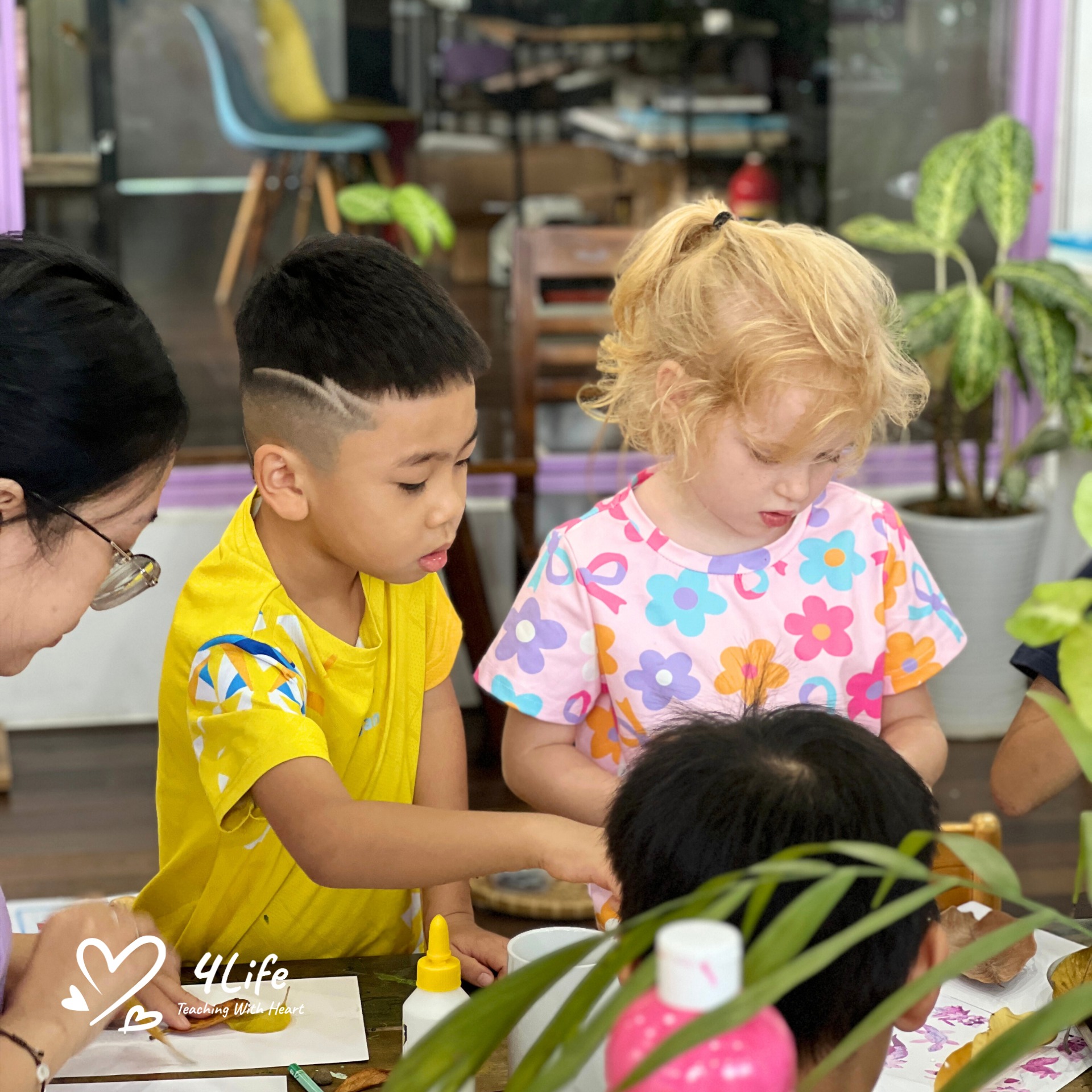Love is at the heart of every Montessori classroom. It shapes how children learn, connect, and grow with joy. Let’s find out with 4Life Education how The Power of Love in Montessori Environments nurtures kindness, confidence, and lifelong learning in every child.
Love as the foundation of Montessori education
At the very core of the Montessori philosophy lies love — not only as an emotion but as a guiding force. Dr. Maria Montessori believed that education should be built upon respect, empathy, and genuine care for each child. In Montessori environments, love creates the conditions where learning unfolds naturally, free from fear or pressure. When children feel loved and accepted, they open their hearts to discovery, curiosity, and creativity. This love-centered approach helps children grow with confidence and emotional balance, allowing them to reach their fullest potential.

The teacher’s role as a loving guide
In Montessori settings, the teacher is not a figure of authority but a gentle guide who leads with love and understanding. Teachers observe each child closely, respecting their pace, interests, and individuality. Rather than correcting mistakes with frustration, they respond with patience and compassion. This loving presence builds trust — and trust encourages independence. When a child knows that mistakes are seen as opportunities to learn, not failures, the classroom becomes a safe space where love fuels growth and resilience.
Love in the prepared environment
Every element in a Montessori classroom reflects love and intention. From the soft natural light to child-sized furniture, everything is arranged to create a sense of peace and belonging. The materials are thoughtfully designed to engage a child’s senses and promote hands-on exploration. Such an environment communicates care — it tells each child, “You are important, and this space is made for you.” Love is present not only in words but in the way the classroom feels. When children walk into a space built with love, they instinctively treat it — and one another — with respect.

Love fosters emotional and social growth
In Montessori classrooms, children learn to express love through kindness, cooperation, and empathy. Mixed-age groups allow older children to model patience and care for younger peers, while younger ones learn gratitude and trust. Through daily interactions, children develop emotional intelligence — they recognize feelings, resolve conflicts peacefully, and offer help without being asked. These small acts of love become the foundation of lifelong social skills. Love transforms the classroom into a miniature community, where everyone feels valued and supported.
Love encourages intrinsic motivation
Unlike traditional reward systems, Montessori education nurtures a child’s inner motivation. Love plays a crucial role in this process. When children feel loved, they don’t act to seek approval; they act because they enjoy learning and contributing. Love helps them internalize discipline, kindness, and curiosity. A child who experiences love in learning grows into an adult who values knowledge, respects others, and approaches life with compassion.
Love builds confidence and independence
True independence in Montessori education doesn’t come from strict rules or control. It blossoms from love — the kind of love that allows freedom within limits. Teachers show love by trusting children to make choices, take responsibility, and learn from their actions. This trust helps children believe in themselves. They develop self-confidence not because someone tells them they are capable, but because love gives them space to prove it. Love empowers independence, making children both capable and content.

Love extends beyond the classroom
The power of love in Montessori environments doesn’t stop at the school’s door. It extends into families and communities. Parents are encouraged to mirror the same love-centered approach at home — by listening, respecting, and involving their children in daily life. When parents and teachers work together with love as the foundation, children experience consistency and emotional security. This shared love creates a ripple effect, strengthening the bond between home and school, and shaping a community where every child thrives.
Love as a tool for peace and harmony
Dr. Maria Montessori envisioned education as a pathway to peace — and she saw love as the key to achieving it. By teaching children to love themselves, others, and the world around them, Montessori environments nurture peaceful hearts. Children raised in love learn empathy before judgment, cooperation before competition. They carry these values into adulthood, contributing to a more harmonious society. In this sense, love is not just a feeling but a transformative force with the power to change the world.
Teaching love through daily interactions
Montessori teachers intentionally weave love into every interaction. A calm tone of voice, a patient smile, a gentle hand when guiding — these gestures speak louder than any lesson. Children imitate what they experience. When they see and feel love consistently, they naturally learn to express it. Over time, this becomes part of their character. Love teaches without words, shaping compassionate and resilient individuals.

Creating a future built on love
In a world that often prioritizes achievement over connection, Montessori reminds us of what truly matters. The power of love in Montessori environments teaches children that success begins with empathy and understanding. By prioritizing love in education, we nurture not only smart minds but also kind hearts. These children grow into adults who bring light, care, and respect into every space they enter.
The Power of Love in Montessori Environments lies in its ability to transform education into something deeply human. Love helps children feel seen, valued, and free to be themselves. It inspires teachers to guide with compassion and families to connect with purpose. When love becomes the foundation of learning, education goes beyond academics — it becomes a journey of the heart. Through love, Montessori continues to shape not only capable learners but also caring, confident, and peaceful individuals who carry its light into the world.
